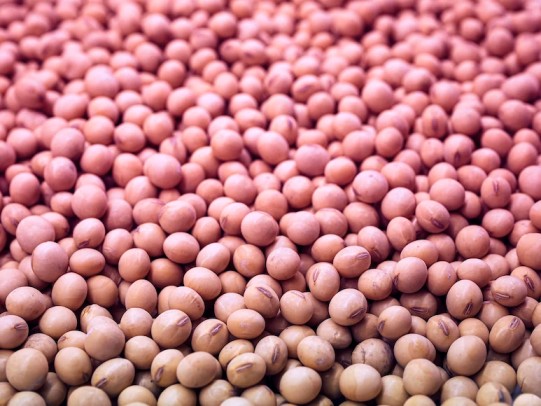Soy, soybean, or soya bean is a specie of legume widely grown for edibles and can be processed into soy protein, soy milk, or soy fiber. It is prevalent because of its multiple health benefits. Due to its nutrient richness, it’s commonly found in many foods and drinks.
Coming from a species of plant called legume, it’s a great source of vitamins and other nutrients. This explains why its products are available in many grocery stores in the US and around the world.
The most familiar soy-based foods are tofu, soy milk, meatless protein burger, infant formula, etc. Soy contains a high concentration of isoflavones, a plant estrogen that functions similarly to human estrogen.
A 2004 report by the American Soybean Association stated that farmers harvested about 3.14 bushels of soybeans (85.5 million metric tons) in the United States alone.
Due to the growing global food needs and their environmental impact, the US government is providing innovations that seek to establish an environmentally friendly world through soy cultivation.
Incidentally, most people need to familiarize themselves with the many benefits of soy products, their effects on the environment, consumption and uses. You can refer to US Soy articles for more information about soy.
Below we discuss some interesting facts about this natural and high-quality protein.
Table of Contents
Health Benefits
Research links soybean and soy foods to many health benefits. Soy contains some bioactive components, among which are isoflavones. Isoflavones behave like estrogen in the human body.
Observations among women who consume rich soy diets indicate that soy can reduce menopausal symptoms because of the phytoestrogen content it possesses.
When consumed regularly over time, soy-rich foods can replace hormones. However, unlike traditional hormone replacement therapy, it will take about a year of regular soy consumption to achieve this.
Studies suggest that soybean and soy food consumption can lower the risk of cardiovascular diseases such as stroke and heart disease. Other benefits include reduced risk of cancers and improved bone health.
Soy is rich in fiber, which helps to keep the digestive system free, lowering blood pressure and improving blood vessels.
Soybeans contain iron and copper, which helps to generate red blood cells. Users believe regular soy consumption can potentially treat sleep disorders and manage diabetes and other symptoms.
Vegetarians and vegan diets find soy a valuable alternative to meat because of its high-quality protein content.
Foods derived from soy, such as tofu and soya milk, contain calcium, iron, and calcium-fortified soy drink. It’s also a source of antioxidants which helps to remove potentially damaging oxidizing agents in the human body
Environmental Benefits of Soy
Most American farmers are conscious of the need to preserve the environment for sustainability for future generations. Education in soy cultivation helps reduce the impact of traditional farming practices worldwide.
Renewable energy, such as biofuels, is a new energy source to ensure a clean and safe environment, as against petroleum-based fuels that increase hydrocarbon emissions.
Soy cultivation emits less greenhouse gas than other animal sources, making for an environmental-friendly production.
With less land, soy cultivation yields more production, thereby ensuring land use efficiency. Reports suggest that US soy farmers have improved soil cultivation by 34%. Soy farming enables more food production while maintaining a healthy society and a safer planet.
Safe To Consume
Because of their rich vitamin and mineral content, soybean and soy foods are safe to consume daily.
Soybean food can either be fermented or unfermented. The unfermented ones are tofu, soy milk, and soy nut. The common fermented foods are tempeh and soy sauce. Other soy-based foods abound. They are burgers, soy bread, yogurt, etc.
Soy products are natural and have clean and pure tastes, with the natural flavors of prepared food. Due to its neutral taste, it can adapt to any food, which makes it suitable for consumption in any processed food or drink.
You can incorporate soy food into your daily diet. Soybeans are a natural source of vitamins and minerals, including vitamin K.
Caution
Despite the high-quality protein content and other health benefits, experts caution that soybean consumption should follow the proper recommended quantity in any food.
Soybean can be found in pharmaceutical products as well. It’s safe to use as a nutritional supplement.
Notwithstanding the numerous health benefits of soy products, they may adversely affect hypersensitive people with allergies to soybean and other soy products. It may lead to the suppression of thyroid function, a gland that controls growth and how the body uses energy. However, there is no proof of such effects on healthy adults. Studies show that infant soy formula may harm premature babies.
Conclusion
There is still much to know about the health benefits of soybean and soy-based foods. Research is still ongoing. Before consuming soy-based foods, check the label and learn the proper dosage suitable for you.
However, if you are looking for soy-based foods to treat menopausal symptoms, you should consult your doctor. While it’s safe to consume soy in moderation, ensure that you do not have any allergies to soy products.











